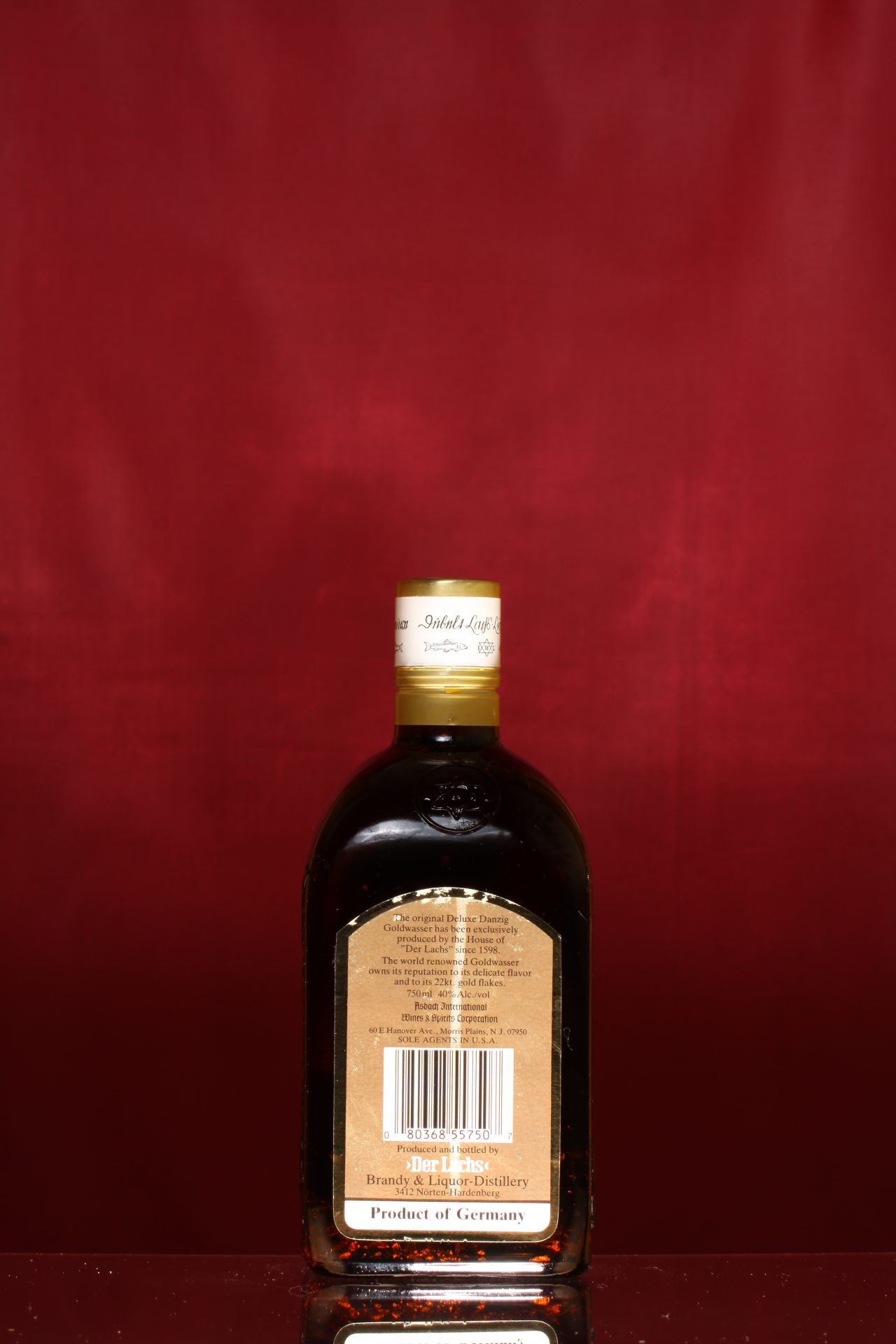DANZIG GOLDWASSER
| Type: | LIQUEUR |
| Flavor: | Anise & Caraway |
| Made From: | Anise & Caraway |
| Produced By: | DER LACHS |
| Origin: | Hardenberg, Germany |
| Proof: | 80 |
| Age: | 0 |
| Importer: | ASBACH INTERNATIONAL WINES & SPIRITS |
| Location: | Morris Plains, N.J. |
Danziger Goldwasser (Polish: Gdanska wodka (vodka of Gdansk)), with Goldwasser as the registered tradename, is a strong (35% ABV) root and herbal liqueur which has been produced since at least 1598 in Danzig (Gdansk).
The most prominent characteristic of this alcoholic beverage is small flakes of 22 or 23 karat gold suspended in it. Alcoholic solutions were used by artists for Gilding, which is believed to be the inspiration for the drink. Alchemy, which was at its high point in the late 16th century when Goldwasser appeared, held gold to have many desirable medical properties; while modern medicine disputes this, native gold is known to be non-toxic to humans and to pass through the digestive tract unchanged, unlike most other heavy metals. Since the flakes are extremely small and thin, the price is not prohibitive. When used as a food additive, Gold is labelled as E175; see List of food additives, Codex Alimentarius.
The drink was invented by a Dutchman from De Lier, Ambrosius Vermeulen who became a citizen of Danzig on 6 July 1598. In 1704 Ambrosius’ grandson Salomon Vermollen and his brother-in-law Isaac Wed-Ling moved production to new premises located in the Breitgasse. At that time it was common for houses to use animal symbols instead of numbers, and the new factory featured a salmon (German: Lachs) on the facade; hence the naming of the brand “Der Lachs zu Danzig”.
Some reliable sources[which?] indicate that Russian Tsar Peter I the Great during his trip to Western Europe-the so-called Grand Embassy-visited the city of Gdansk (Danzig). He founded the official Russian consulate in Danzig (Gdansk) and became a great lover of Danziger Goldwasser. He ordered permanent delivery of Goldwasser to Russia for himself.
As the Free City of Danzig and East Prussia were separated from Germany after World War I by the Polish corridor, the Der Lachs company opened in 1922 an additional factory in Berlin to supply the main part of Germany and international markets with their products Danziger Goldwasser and Krambambuli from there. After 1945, when the city became part of Poland, only the Berlin factory continued to produce genuine Danziger Goldwasser. In 1971 Der Lachs was taken over by the Hardenberg-Wilthen distillery and production was moved to the town of Norten-Hardenberg in West Germany


